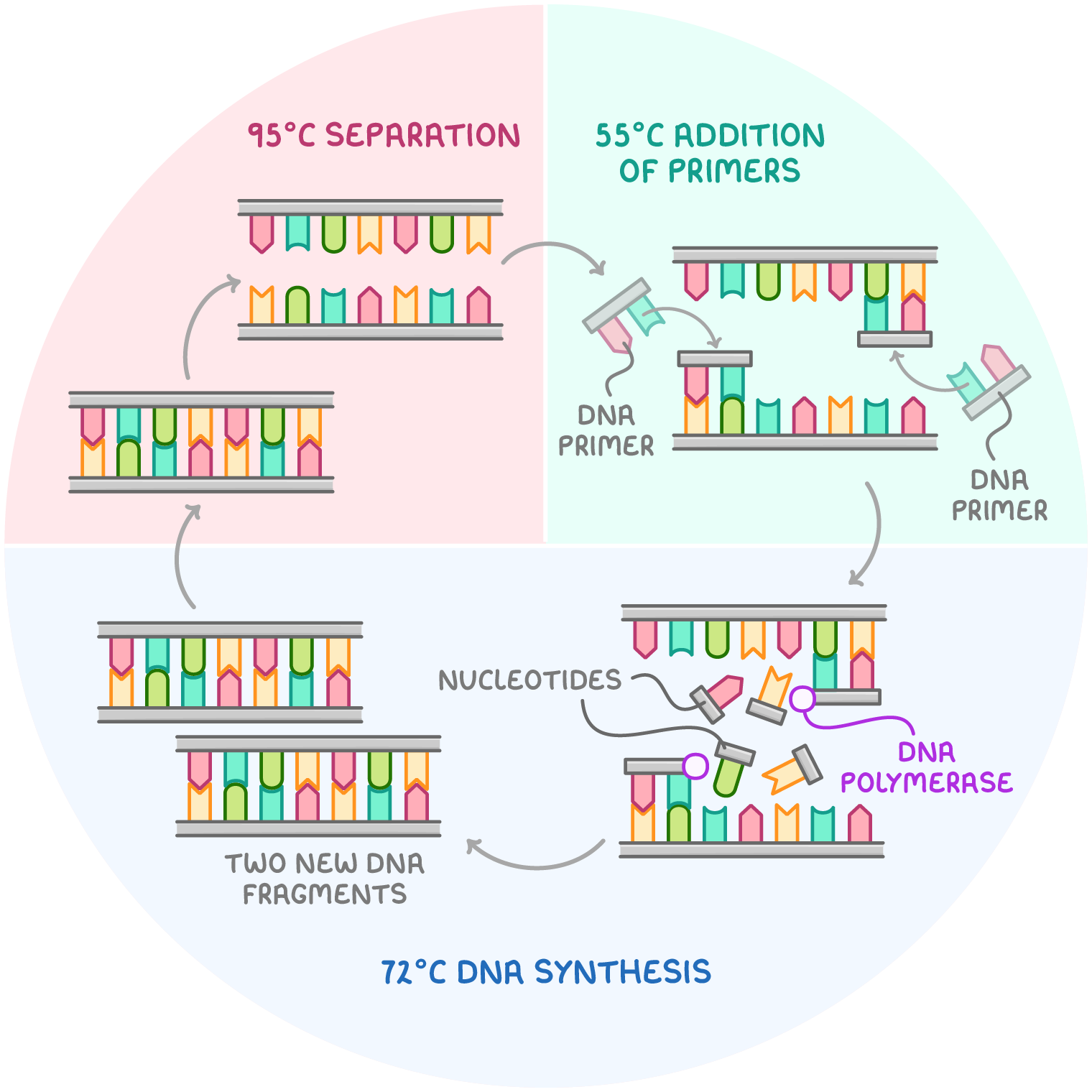In Vitro Cloning
This lesson covers:
- What the polymerase chain reaction is
- The key components needed to perform the polymerase chain reaction
- The three main stages of the polymerase chain reaction
- The advantages of the polymerase chain reaction
What is the polymerase chain reaction?
The polymerase chain reaction (PCR) is a method for amplifying DNA fragments rapidly and efficiently. 'Amplifying' means that a large number of DNA fragments are being produced.
PCR is an automated technique that does not require living cells to rapidly replicate specific DNA fragments. It is sometimes called 'in vitro cloning'.
The components required for PCR are:
- DNA fragment - This is the specific target DNA template sequence that needs to be replicated.
- Primers - These are short sequences of nucleotides that attach to the start and end of the DNA fragment to be copied.
- DNA polymerase - This is an enzyme that creates new DNA strands by adding DNA nucleotides.
- Free nucleotides - The building blocks (A, T, C, and G) that are used to construct the new DNA strands.
- Thermocycler - This is a device that precisely heats and cools the PCR mixture to facilitate the reaction.
A type of DNA polymerase that can withstand high temperatures without denaturing is used to ensure it remains active throughout the process. An example is Taq polymerase from thermophilic bacteria.
The three main stages of the polymerase chain reaction
PCR operates through a cycle of temperature changes to duplicate DNA fragments. Each cycle comprises three critical stages.

| Stage | Temperature | Process |
|---|---|---|
| 1. Separation (denaturation) | 95°C | Heating the DNA separates the hydrogen bonds between its two complementary strands. |
| 2. Addition of primers (annealing) | 55°C | The primers attach to the specific starting points on each of the separated DNA strands by forming hydrogen bonds. |
| 3. DNA synthesis (extension) | 72°C | DNA polymerase adds free nucleotides to the ends of the primers, extending the DNA strand to form a complete copy. |
Free deoxynucleotide triphosphate molecules (dNTPs) provide the energy for the formation of phosphodiester bonds.
The advantages of the polymerase chain reaction
PCR is a revolutionary technique that allows for the rapid and efficient amplification of DNA without the need for living cells.
Key advantages:
- Rapid speed - It can produce approximately 100 billion copies in just a few hours, which is not possible with in vivo cloning.
- Precision - The automated nature of thermocycling ensures accurate amplification of the DNA fragment.
- Low DNA needs - Even tiny samples can be amplified to produce a large quantity for analysis.
- No cells needed - This method is simpler and more straightforward than traditional in vivo techniques, which are typically slower and more complex.